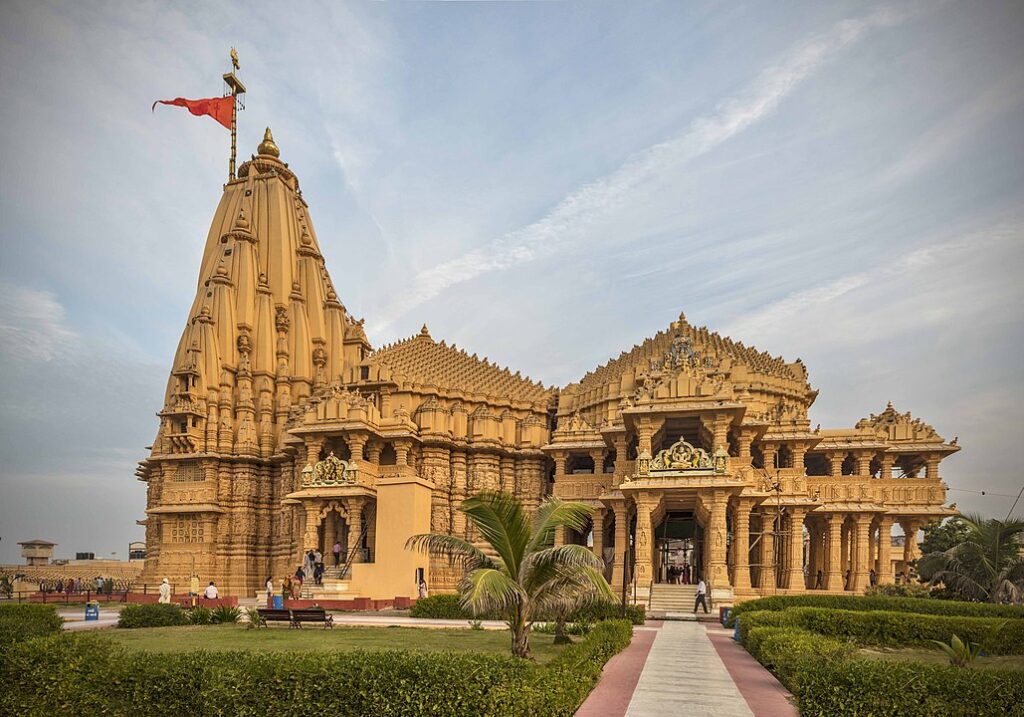
Srila Bhaktivedanta Swami has said of Bilvamangala Thakur:
A great Vaisnava sannyasi named Bilvamangala Thakura, who is also known as Lilasuka. He intensely desired to enter into the eternal pastimes of the Lord, and he lived at Vrndavana for seven hundred years in the vicinity of Brahma-kunda, a still-existing bathing tank in Vrndavana. The history of Bilvamangala Thakura is given in a book called Sri Vallabha-digvijaya. He appeared in the eighth century of the Saka Era [approximately in the 700’s] in the province of Dravida, and was the chief disciple [follower] of Visnusvami. In a list of temples and monasteries kept in Sankaracarya’s monastery in Dvaraka, Bilvamangala is mentioned as the founder of the Dvarakadhisa temple there.
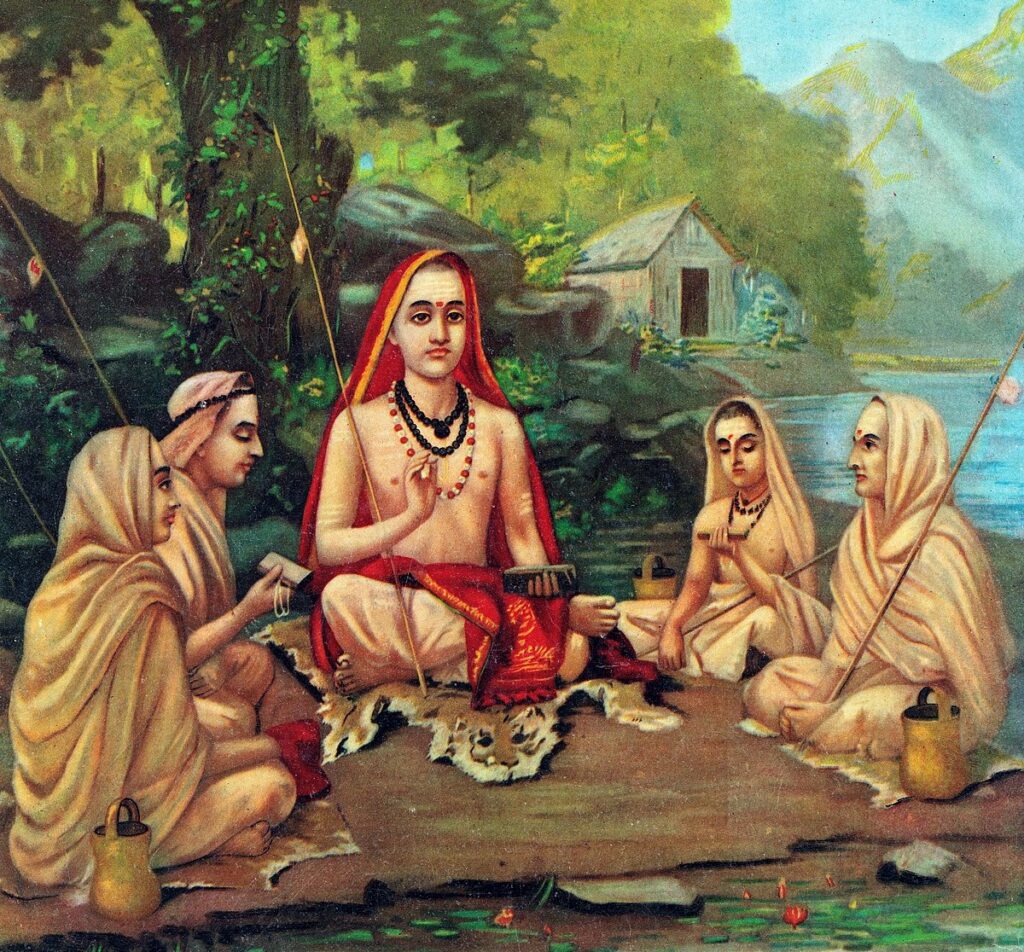
Sankaracharya
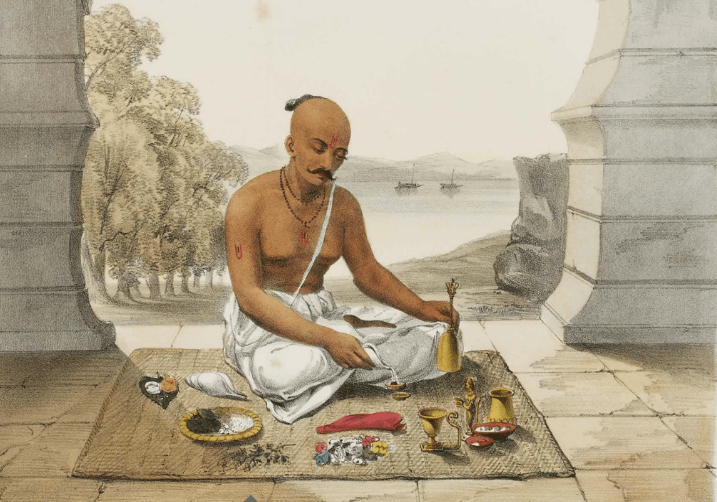
He soon became conversant with the teachings of Vedanta and became proficient in Sanskrit. Since the family was well placed, Bilvamangala lived a comfortable life, adhering strictly to the Vedic principles and observing celibacy. However, soon after his parents’ demise, Bilvamangala gradually became neglectful of his religious duties and fell into bad company. Thus, he happened to meet a courtesan named Cintamani, living on the other side of the river bank. Bilvamangala yearned to live with the courtesan and exhausted all the parental wealth and assets in such dealings, giving up his brahminical culture.
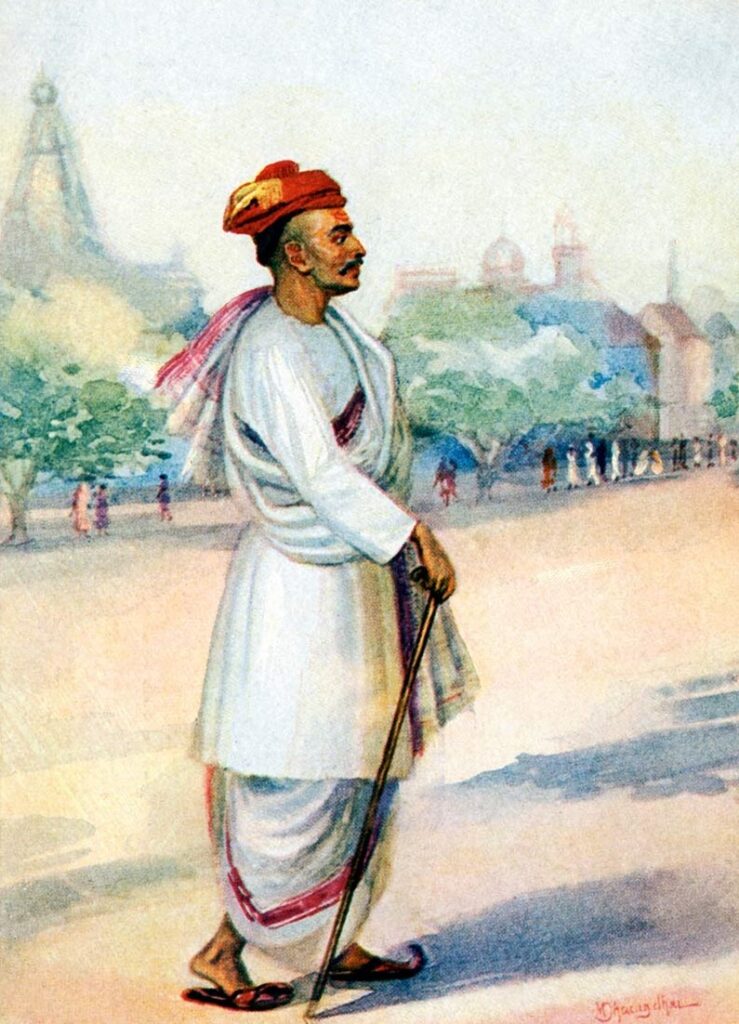
Bilvamangala Thakur met and became infatuated with Cintamani, who despite her situation in life was actually a devotee of Lord Krishna. Bilvamangala was so enamoured by Cintamani that even while he performed the sraddha ceremony for his departed father, he could only think of being with her. One year had elapsed since his father passed away, and Bilvamangala performed the sraddha ceremony commemorating the death anniversary day of his deceased father. While it was recommended that he spend the night at a holy shrine, Bilvamangala could not refrain from his thoughts about meeting the courtesan.
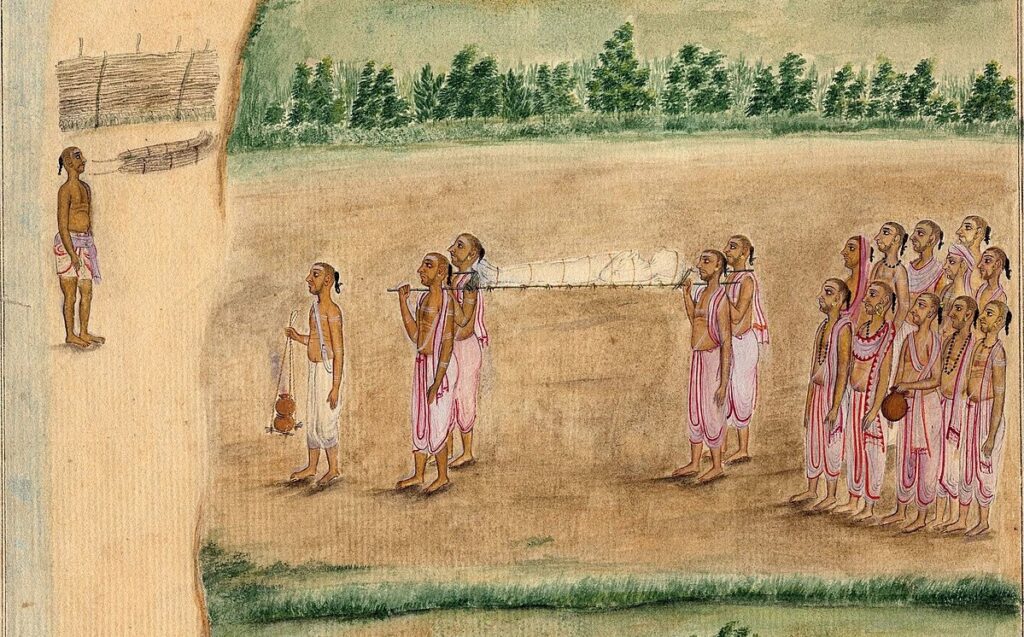
On completion of the ceremony, he immediately left to visit her, and as he approached her house there was a fierce storm. Finding no boat waiting at the river’s edge, but overcome with desire, he entered the raging waters and floated across the river by holding onto a human corpse. Despite being buffeted by the fierce wind and rain and swamped by furious waves, he somehow made it to the other bank.
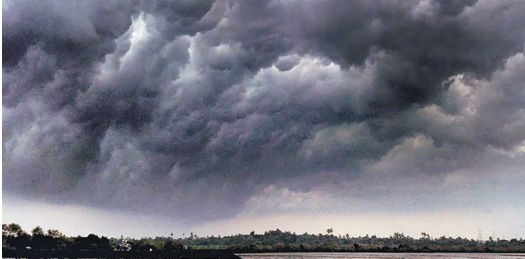
Upon reaching the house of Cintamani, he found the gates to the outer courtyard were locked, and so with determination born of insatiable lust, he scaled the walls by using a large serpent as a rope. When he finally reached the object of his desire, he was soaking wet, shivering cold and exhausted. He told Cintamani how he had floated across the river kept afloat by a corpse, and then used a snake to scale the walls.

Cintamani was astonished by the extreme lengths to which he would go to satisfy his lust for her, and she advised Bilvamangala, “You are so attached to enjoying this lowly bag of flesh and bones. Your desire for pleasure would be far better utilized if it could be reposed on the transcendental beauty of Lord Krishna. You should go to Vrindavana, and there you will find complete satisfaction and eternal happiness.”
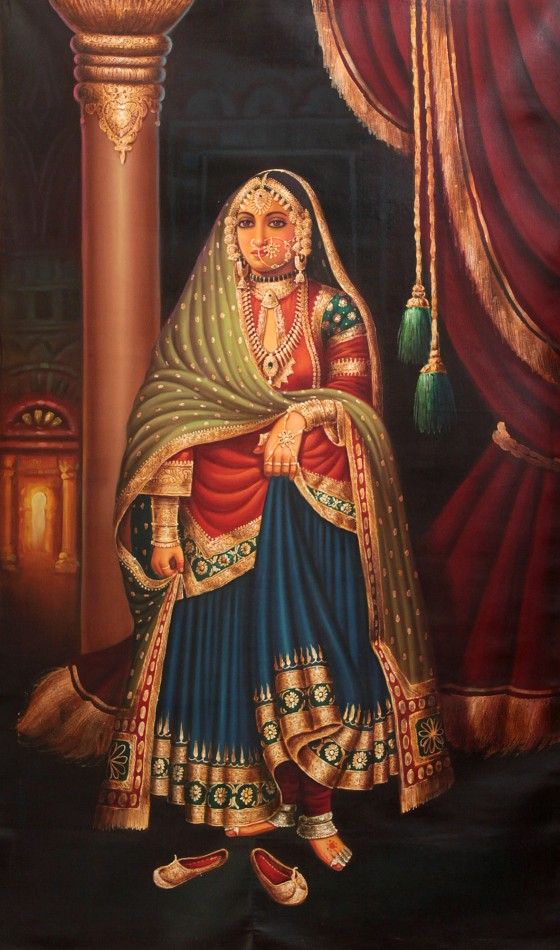
Due to the advancement he had made in his past life, Bilvamangala was struck by the truth of her words as if awakened from a trance. He determined to follow her instructions, setting off immediately for Vrindavana to take shelter of Lord Krishna. However, on his journey he stayed a night in the house of a wealthy merchant. The merchant’s wife was very beautiful, and Bilvamangala was once again overcome with lust. Understanding the mind of this aristocratic brahmana, the man offered him his wife to satisfy his desires. As Bilvamangala Thakur was about to embrace this woman, he remembered the words of Cintamani, and was overcome with remorse. He asked her, “Mother, please give me the pins out of your hair. I am very mad after the beauty of women. So, let me pluck out my eyes.” In this way, he blinded himself.
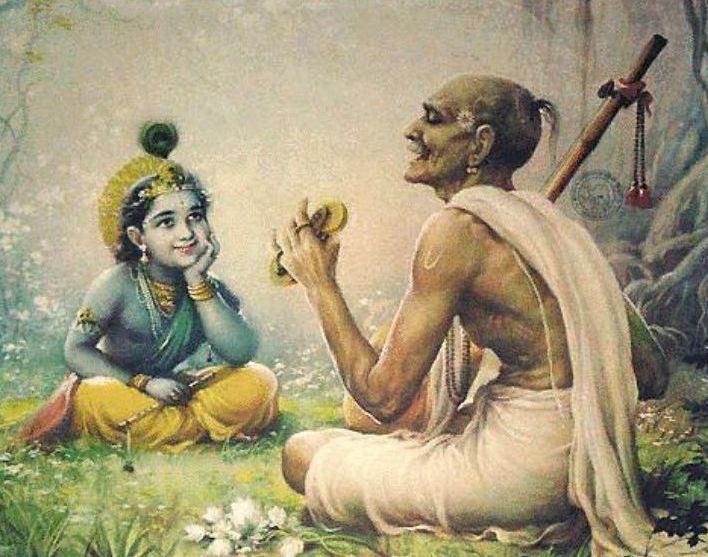
Bilvamangala Thakur continued on his journey for Vrindavana. By dint of his yogic power, he lived for seven centuries in the vicinity of Brahma-kunda, a still-existing bathing kunda, performing his devotional service of singing the glories and pastimes of Lord Krishna. While chanting Krishna’s holy names in Vrndavana, a young cowherd boy would come daily to visit him and bring him milk to drink. Sometimes this young boy would lead Bilvamangala to places where he could rest more comfortably in the shade or take shelter from stormy weather.
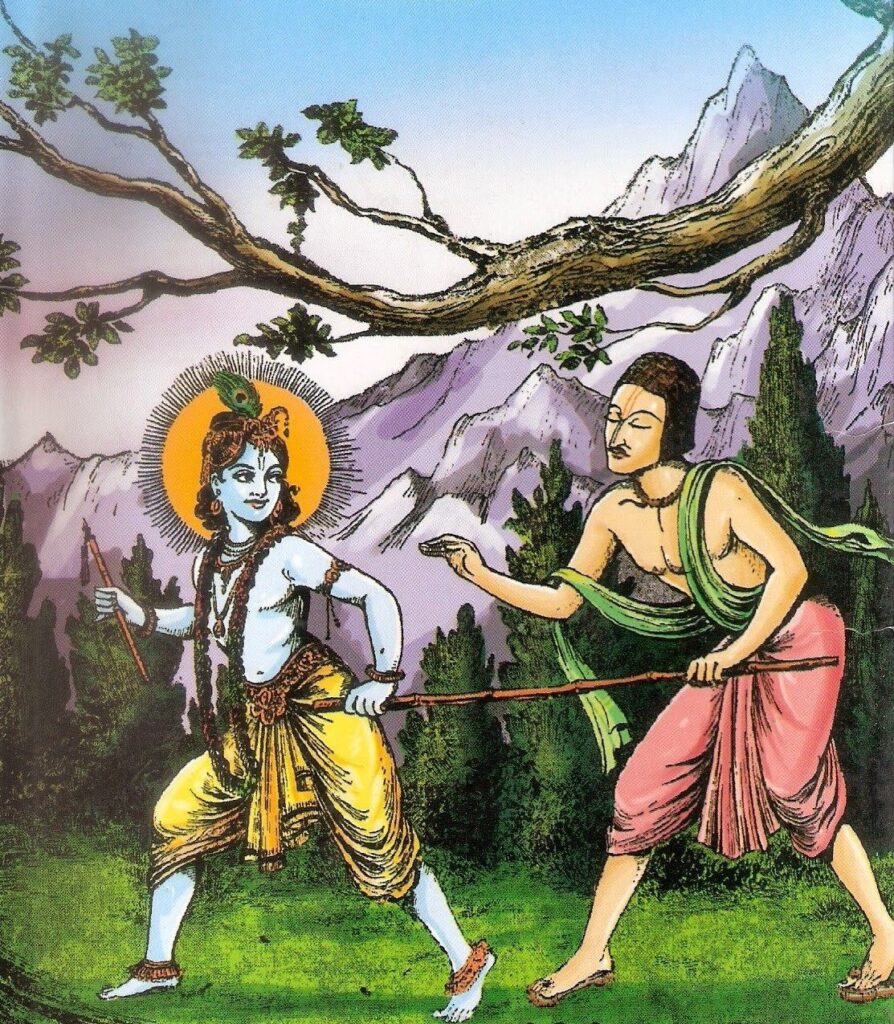
At first Bilvamangala didn’t know the identity of this sweet young resident of Vrindavana. Then one day He played his captivating flute for the old blind man, and Bilvamangala realized that this young boy was none other than Krishna Himself. At this time Bilvamangala reached out to touch Krishna, and playful Gopala touched his hand, laughed lovingly, and ran away. Sighing in great ecstasy, Bilvamangala said:
You can run away from my hand, but You can never leave my heart.
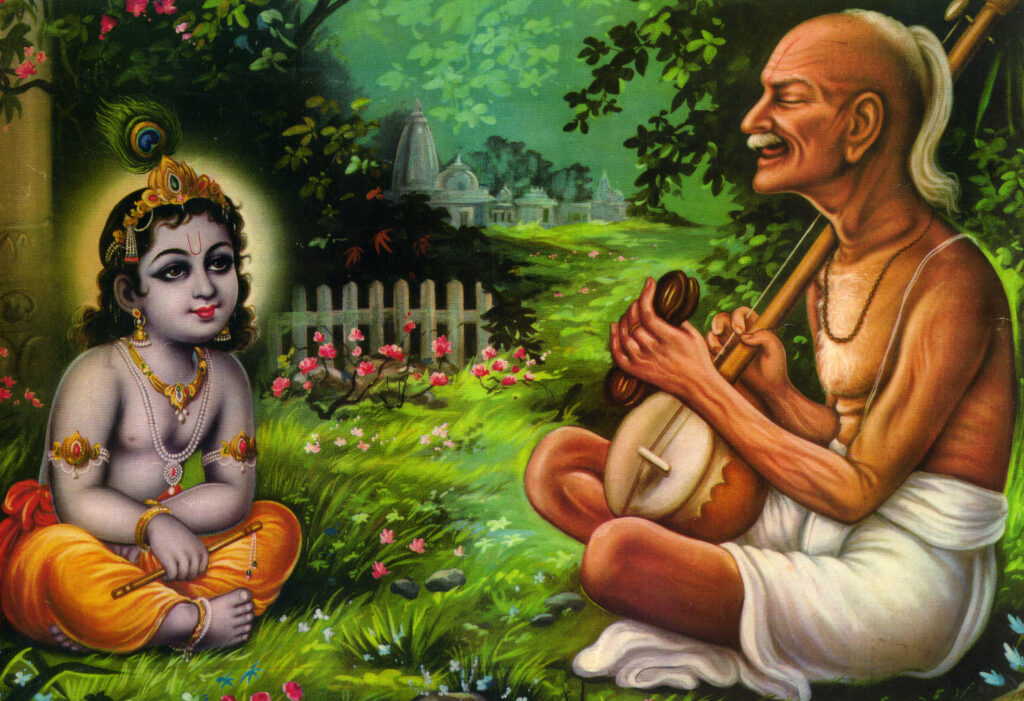
Although Bilvamangala Thakur could not see with his material eyes, he was able to see Lord Krishna with the eyes of devotion. Thus, he realized Krishna through the process of devotional service and wrote of his personal experiences and appreciation in a book called Krishna-karnamrta. Karnamrta means “pleasing to the ear” [“karna” means ear and “amrta” means nectar]. Lord Chaitanya discovered this book among manuscripts in a temple in South India and recommended that all His devotees read it. This book was one of the first authentic books to reveal the supreme position of Srimati Radharani in Krishna’s Madhurya lila pastimes in Vrindavana [“Radhe Vrindavana isvari” – Radha is the Queen of Vrindavan].
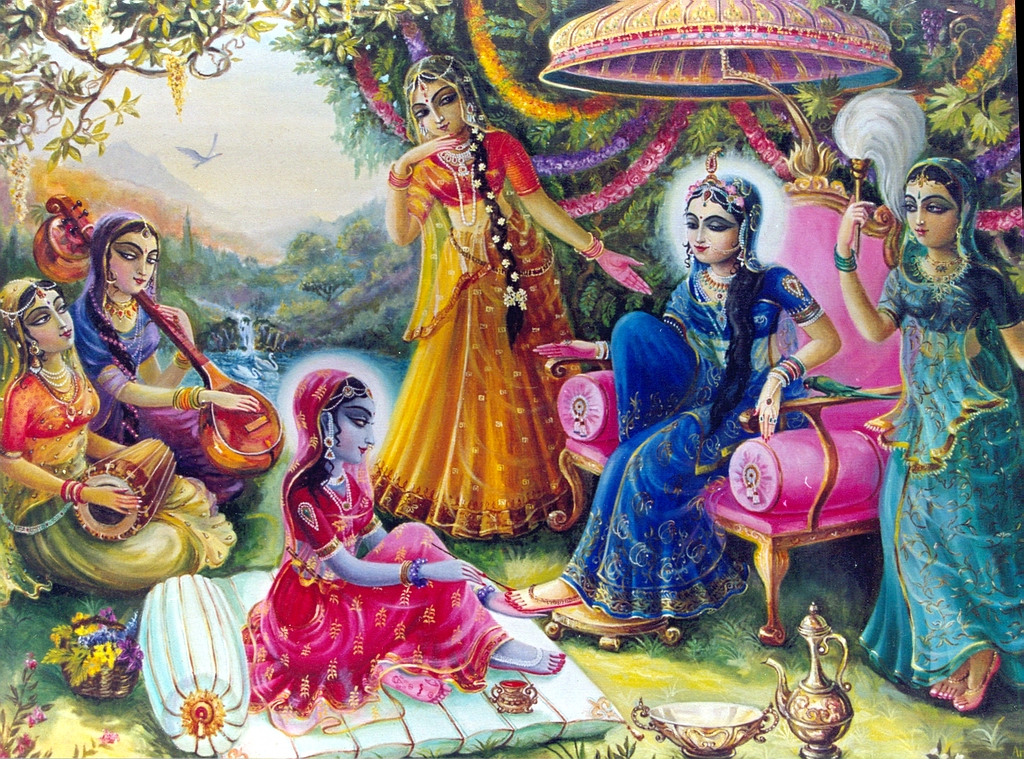
The Lord said, ‘For your sake only, I have brought two books from South India. The books are kept with Svarupa Damodara, and you can get them copied. Hearing this, Vasudeva became very glad. Indeed, each and every Vaisnava copied the two books. By and by, the two books [the Brahma-samhita and Sri Krishna-karnamrta] were broadcast all over India.
[Lord Chaitanya to Vasudeva Datta – Caitanya-caritamrta Madhya 11:141-143]
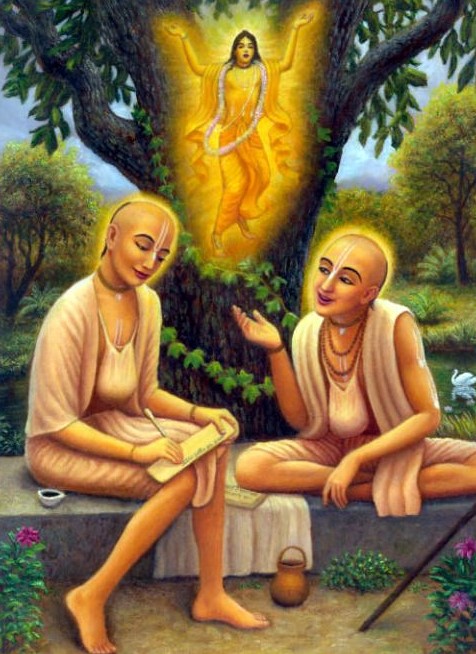
In the beginning of Krishna-karnamrita, Bilvamangala Thakur offers his obeisances to his different gurus, whom he adores equally. The first spiritual master mentioned is Cintamani, who he describes as one of his instructing spiritual masters [or siksa guru] because she first showed him the spiritual path and convinced him to give up material existence to try for perfection by loving Krishna. Next, he offers his respects to his initiating spiritual master, Somagiri, and then to the Supreme Personality of Godhead, who was also his instructing spiritual master:
All glories to Cintamani and my initiating spiritual master, Somagiri. All glories to my instructing spiritual master, the Supreme Personality of Godhead, who wears peacock feathers in His crown. Under the shade of His lotus feet, which are like desire trees, Jayasri [Radharani] enjoys the transcendental mellow of an eternal consort.
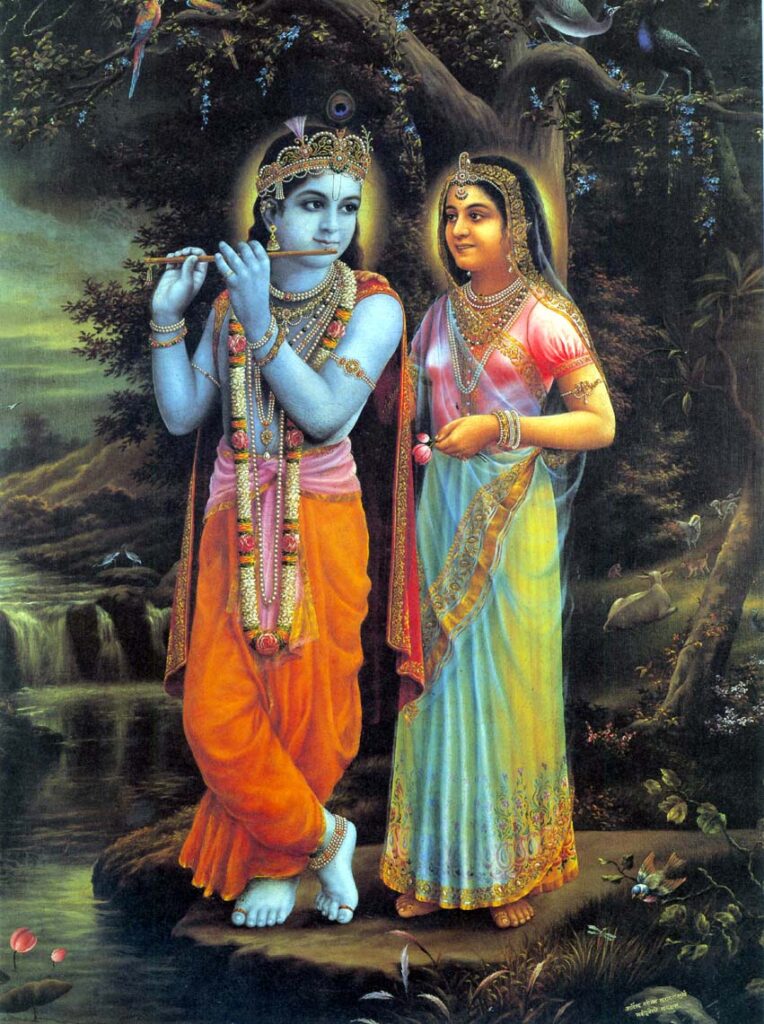
Srila Bhaktivedanta Swami states:
The complete treatise Krishna-karnamrta is dedicated to the transcendental pastimes of Sri Krishna and Srimati Radharani. It is a book to be read and understood by the most elevated devotees of Sri Krishna.
Bilvamangala Thakura is also known as “Lilasuka,” a name given to Bilvamangala by his initiating guru Somagiri on account of his wonderful efforts to describe the loving pastimes of Lord Krishna, thereby making these pastimes sweeter and more relishable. [“Lila” means pastimes and “suka” means parrot – it is said that the mango fruit tastes sweeter when it has been pierced by the beak of a parrot].
Bilvamangala Thakur was a great acharya of the Rudra [Shiva] Vaisnava sampradaya, of which Visnusvami, who expounded suddhadvaita philosophy, was the most prominent acharya. Sridhar Swami, the renowned commentator of Bhagavad-gita and Srimad Bhagavatam, also belongs to the Visnuswami sampradaya. In a list of temples and monasteries kept in Sankaracarya’s monastery in Dvaraka, Bilvamangala is mentioned as the founder of the Dvarakadhisa temple there.
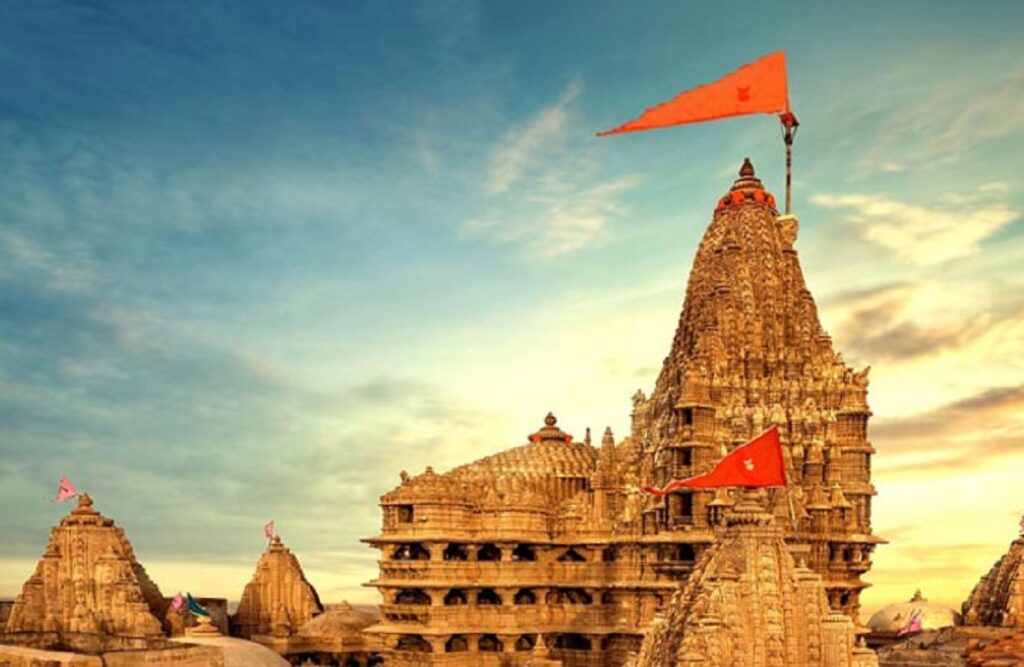
Bilvamangala’s famous work, the Sri Krishna-karnamrta, is not recommended for neophyte devotees like myself. However Srila Rupa Goswami selected certain verses for his amazing work, the Bhakti Rasamrta Sindhu. Srila Bhaktivedanta Swami has beautifully translated this book as The Nectar of Devotion. There are also verses from Bilvamangala’s work quoted in the Caitanya-caritamrta. And I have included some captivating verses from part 8 of Sri Krishna Karnamrta.
Quoted Verses from Krishna-karnamrta
Let the impersonalists be engaged in the process of transcendental realization by worshiping the impersonal Brahman. Although I was also initiated into that path of Brahman realization, I have now become misled by a naughty boy – one who is very cunning, who is very much attached to the gopis and who has made me His maidservant. So I have now forgotten the process of Brahman realization.
[Krishna-karnamrita: quoted Nectar of Devotion ch. 35]
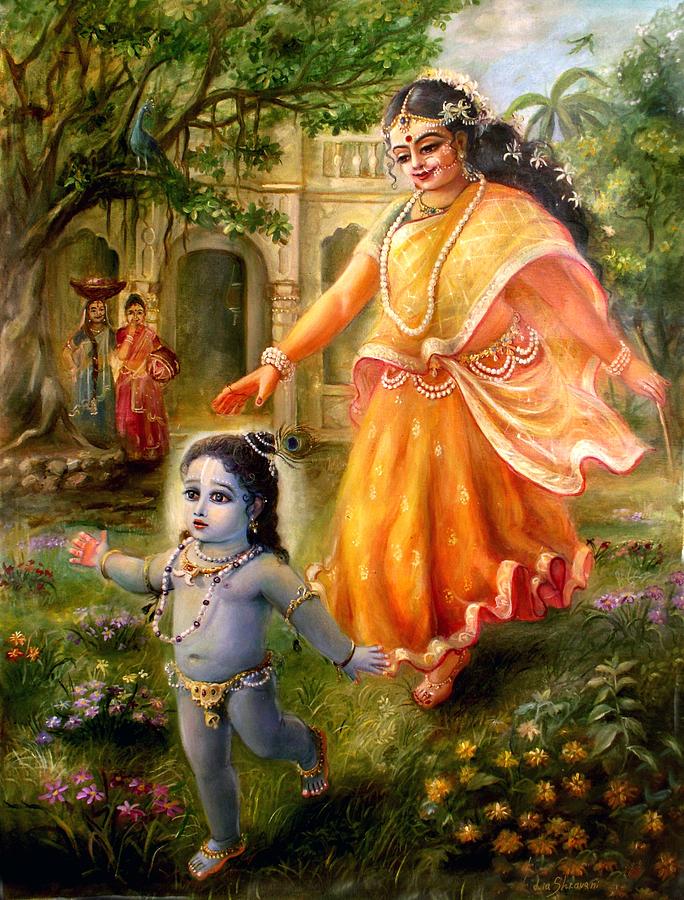
Bilvamangala Thakura was first spiritually initiated for impersonal realization of the Absolute Truth, but later on, by his association with Krishna in Vrindavana, he became an experienced devotee.
[Srila Bhaktivedanta Swami: Nectar of Devotion ch. 35]
If I am engaged in devotional service unto You, my dear Lord, then very easily can I perceive Your presence everywhere. And as far as liberation is concerned, I think liberation stands at my door with folded hands, waiting to serve me.
[Nectar of Devotion ch. 3]
My dear Lord, what can I say about the opulence of Your Vrndavana? Simply the ornaments on the legs of the damsels of Vrndavana are more than cintamani, and their dresses are as good as the heavenly parijata flowers. And the cows exactly resemble the surabhi cows in the transcendental abode. Therefore Your opulence is just like an ocean that no one can measure.
[Nectar of Devotion ch. 21]
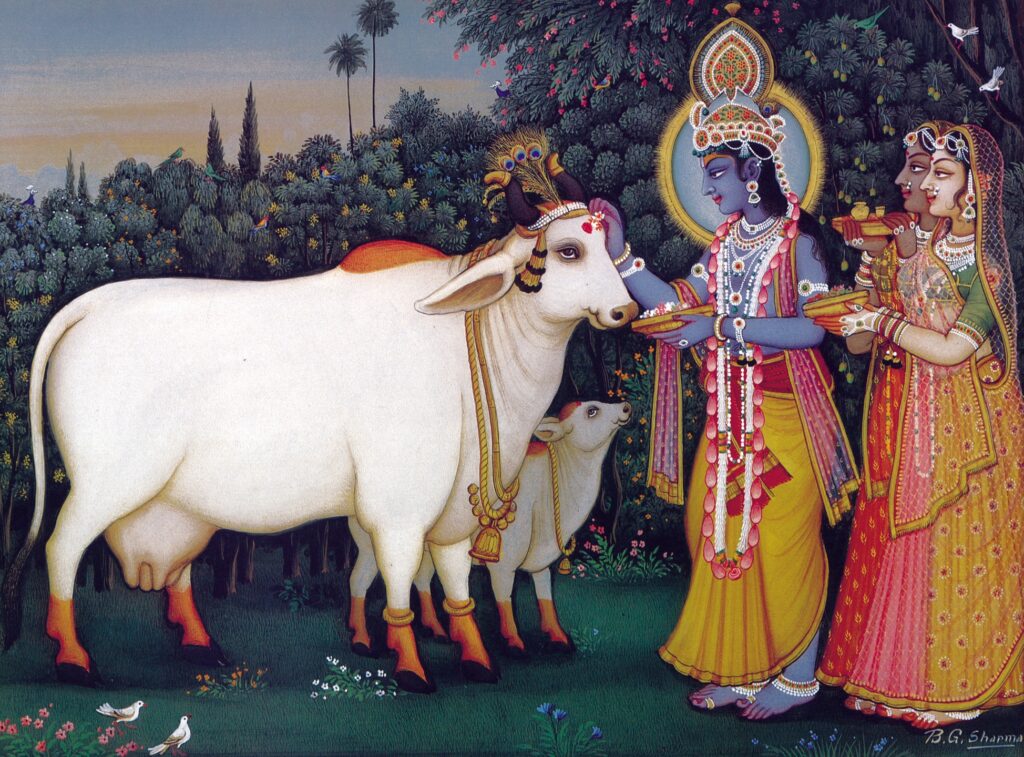
How miserable it is, my dear Krishna, O friend of the hopeless! O merciful Lord, how can I pass these thankless days without seeing You?
[Nectar of Devotion ch. 37]
My dear Lord, You are the ocean of mercy. With my arms placed upon my head, I am bowing down before You with all humility and sincerity. I am praying unto You, my Lord. Would You be pleased just to sprinkle a little of the water of Your glance upon me? That will be a great satisfaction.
[Nectar of Devotion ch. 37]
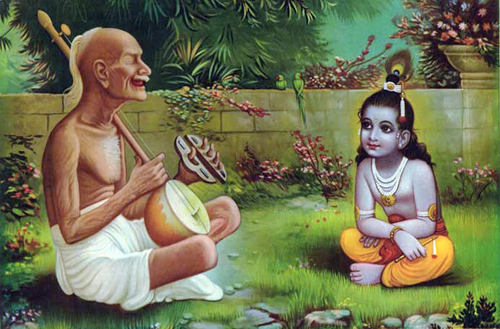
My dear Lord, Your naughtiness in boyhood is the most wonderful thing in the three worlds. And You Yourself know what this naughtiness is. As such, You can very easily understand my flickering mind. This is known to You and me. Therefore, I am simply yearning to know how I can fix my mind on Your lotus feet.
[Nectar of Devotion ch. 38]
I am eagerly waiting to see that boy of Vrndavana whose bodily beauty is captivating the whole universe, whose eyes are always bounded by black eyebrows and expanded like lotus petals, and who is always eagerly glancing over His devotees and therefore moving slightly here and there. His eyes are always moist, His lips are colored like copper, and through those lips there comes a sound vibration which drives one madder than a mad elephant. I want so much to see Him at Vrndavana!
[Nectar of Devotion ch.18]

What shall I do for Krishna, who is pleasing beyond all pleasurable conceptions, and who is naughtier than all restless boys? The idea of Krishna’s beautiful activities is attracting my heart, and I do not know what I can do!
[Nectar of Devotion ch.18]
My dear Krishna, You are leaving me, forcibly getting out of my clutches. But I shall be impressed by Your strength only when You can go forcibly from the core of my heart.
[Nectar of Devotion ch. 29]
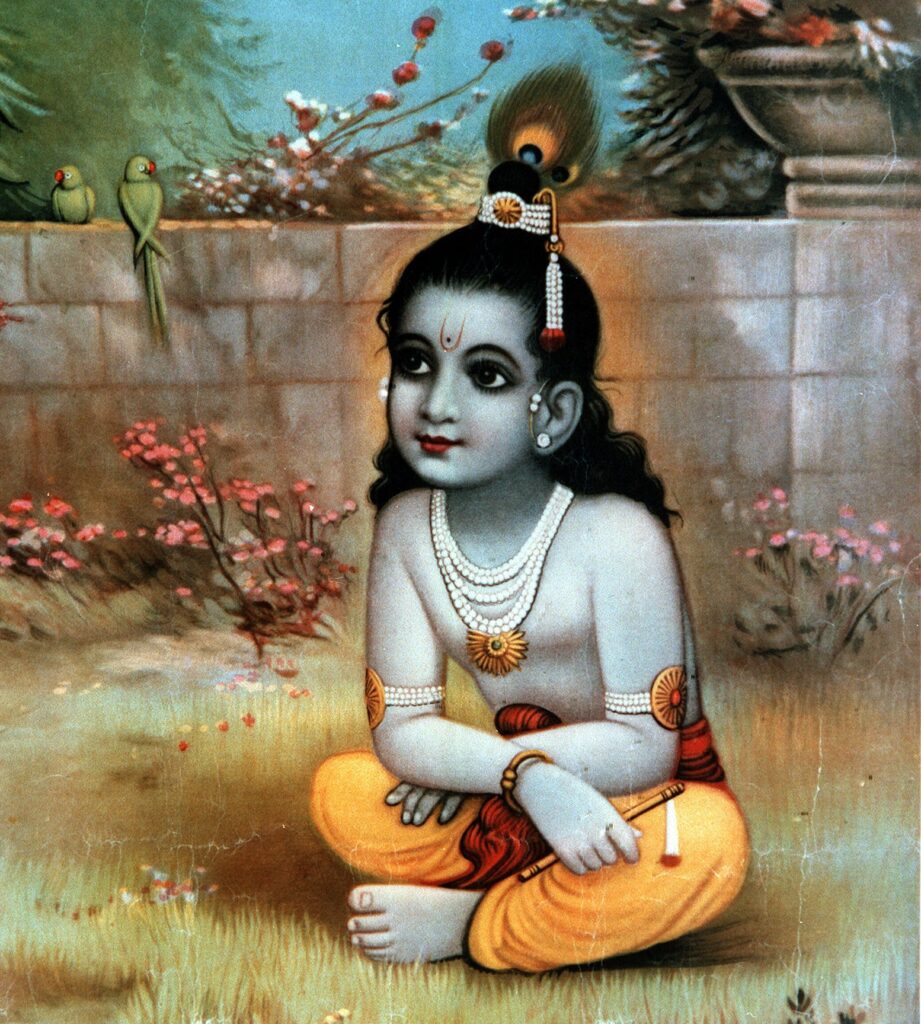
O Krishna, O flute player, the sweetness of Your early age is wonderful within these three worlds. You know My unsteadiness, and I know Yours. No one else knows about this. I want to see Your beautiful, attractive face somewhere in a solitary place, but how can this be accomplished?
[Caitanya-caritamrta Madhya 23:31]
O my Lord, the transcendental body of Krishna is very sweet, and His face is even sweeter than His body. The soft smile on His face, which is like the fragrance of honey, is sweeter still.
[Caitanya-caritamrta Madhya 23:35]
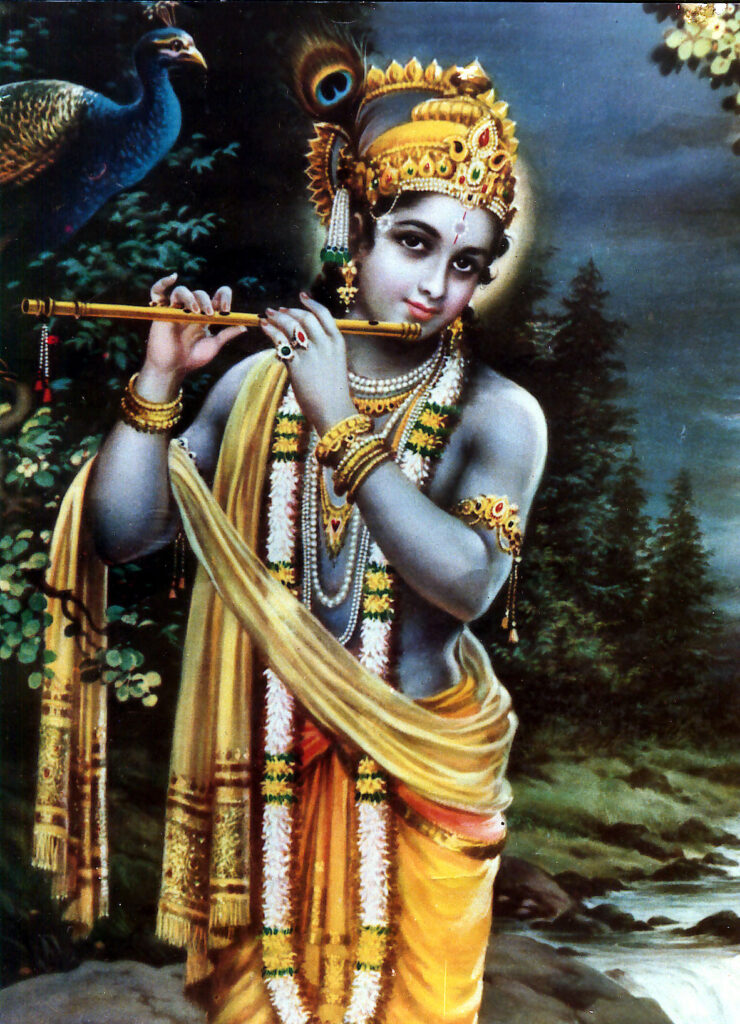
O My Lord, O Supreme Personality of Godhead, O friend of the helpless! You are the only ocean of mercy! Because I have not met You, My inauspicious days and nights have become unbearable. I do not know how I shall pass the time.”
[Caitanya-caritamrta Madhya 2:58]
O Lord Govinda, the girl who is the daughter of King Vrsabhanu is now shedding tears, and She is anxiously chanting Your holy name – ‘Krishna! Krishna!’
[Nectar of Devotion ch.18]
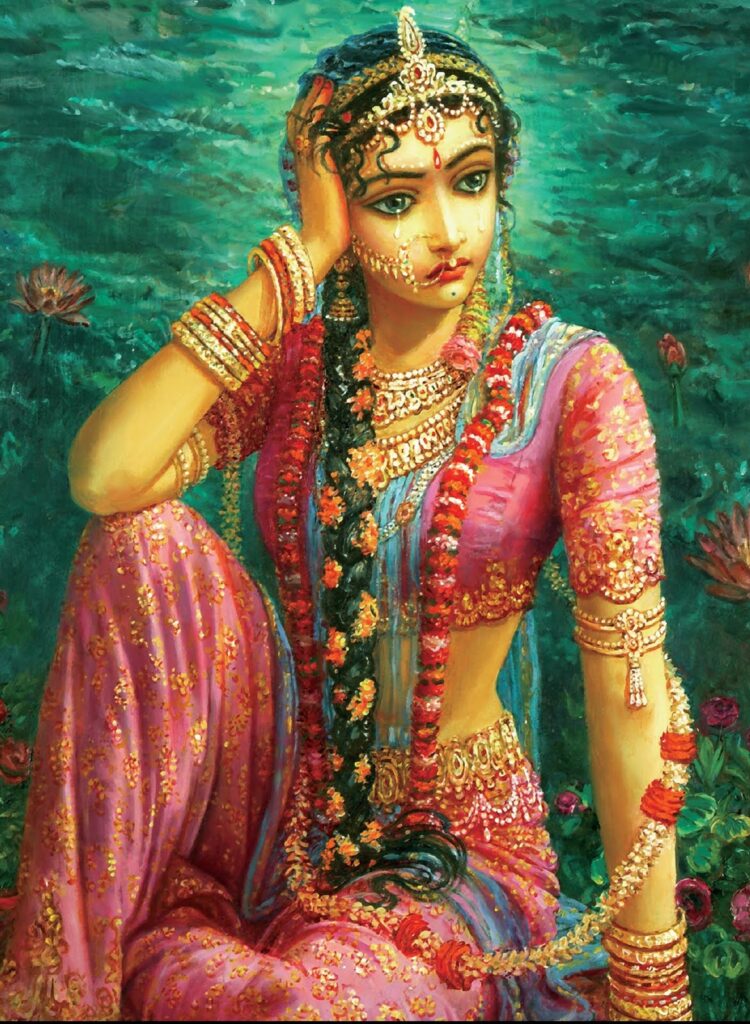
O My Lord! O dearest one! O only friend of the universe! O Krishna, O restless one, O ocean of mercy! O My Lord, O My enjoyer, O beloved to My eyes! Alas, when will You again be visible to Me?
[Caitanya-caritamrta Madhya 2:65]
Sri Krishna-karnamrta, part 8
This child (Krishna), who is the ornament for the intimate community of cowherd boys and girls, whose lively glances are so soothing, and whose moon-face has a wealth of soft, tender smiles, gladdens my heart and enters deep within it.
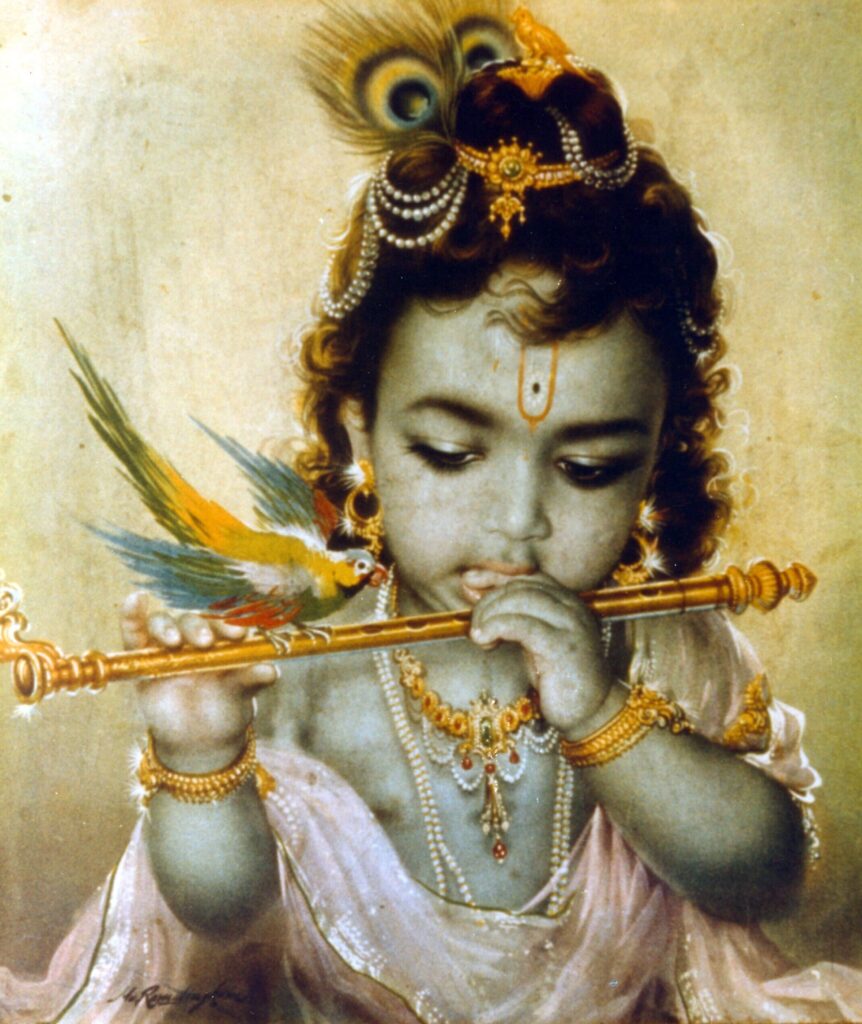
How wonderful! The sound of the flute Krishna is holding to His lips is pouring forth an indescribable flood of divine love before our very eyes! This is rare even among the planets of the demigods. Krishna, our darling, our God, our very life, delights the three worlds.
This person approaching me is dark bluish like a tamala tree. His charming eyes, which resemble stars, move restlessly, the shining orb of His moon-face is overflowing with delight [or, His face radiates joy like the rising moon], and He sportively begins sounding His flute. He is my very life.
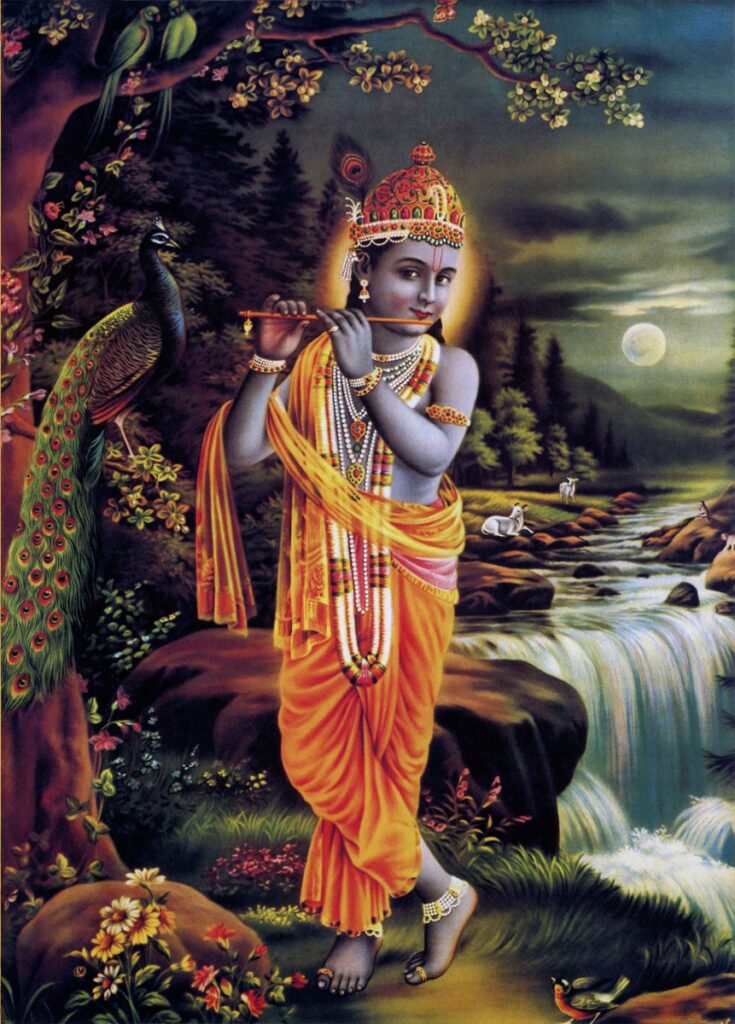
Here is that Krishna, my very life! He is the acme of fickleness, the one ultimate end of the existence of the fickle-minded milkmaids, the epitome of cleverness, the extreme perfection of the artistic skill of four-faced Brahma, the limit of good fragrance, the utmost embodiment of all sorts of astounding pastimes, the culmination of good fortune, and the zenith of auspicity for Vraja.
Oh! My good deeds have reached their culmination: Krishna has appeared before my eyes! The moon of His face is made doubly refreshing by its sweet tenderness, and He sprinkles me with the current of nectar dropping note by note from the holes of His flute. He is the object of my words, which, though mad, are fortunate [to be describing Him].
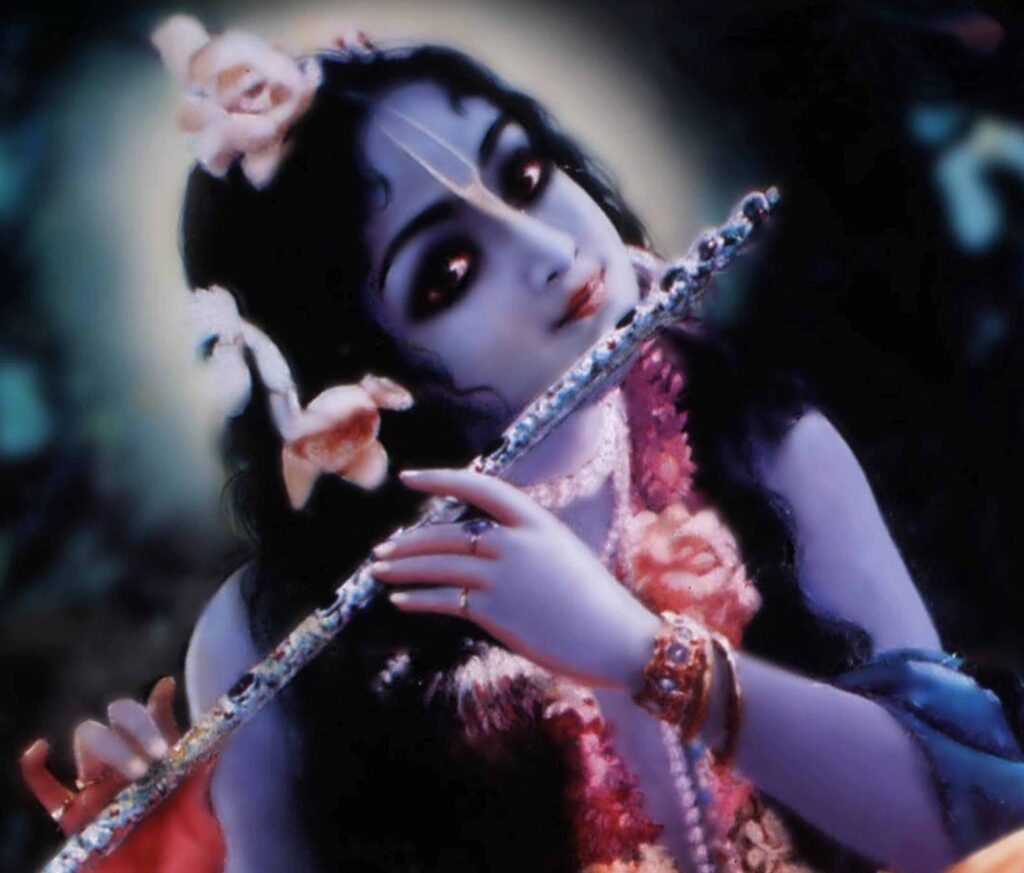
I bow down to the personified splendor (Krishna), who is the protector of the cows-and also all the worlds – and who reclines on the sloping breasts of Radha – and also on Seshanaga.
Here comes my very life [Krishna]! Having assumed a sporting attitude, He slowly approaches on tender lotus feet weighed down by softly tinkling anklets as He recollects various charming flute-songs.
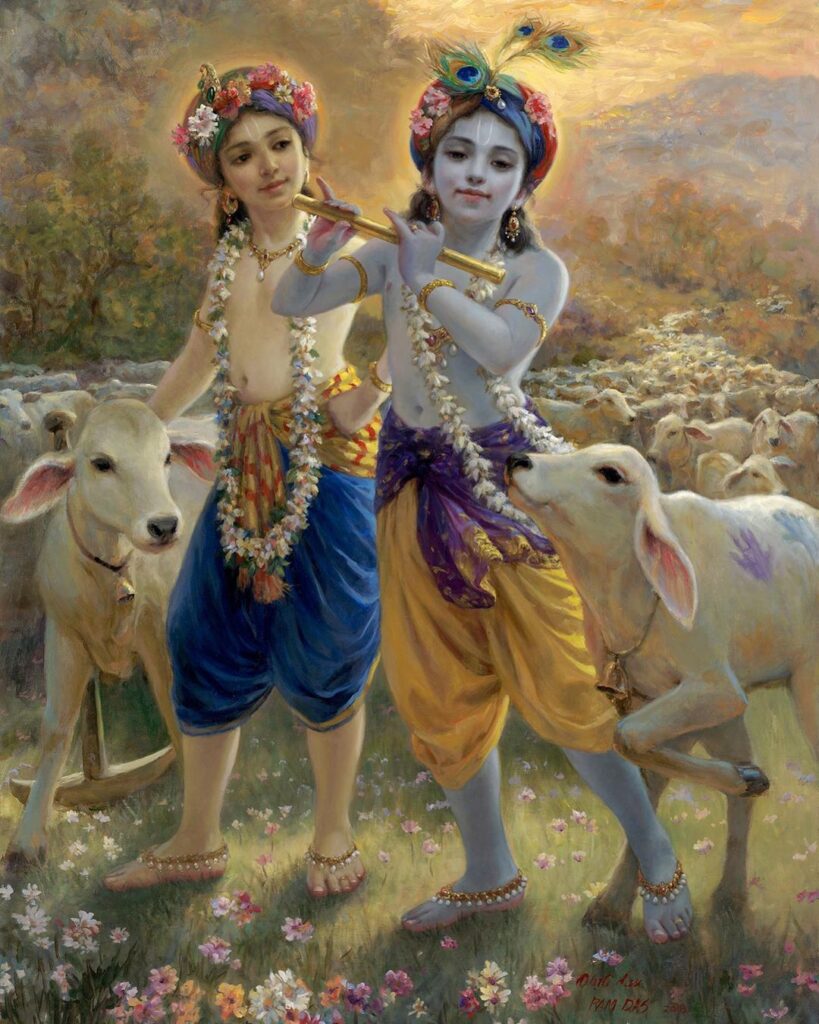
Here comes [my very life, [Krishna]! The beauty of His playful sidelong glances overflows with bliss, and He sprinkles my two perked-up ears with the nectar of His sportive flute-songs. He is the only friend for my eyes.
Seeing me from a distance with a flood of sidelong glances, my Lord walks toward me with the sportive grace of an elephant and moves my heart with the current of flute-sound emanating from His mouth, which is filled with brightly glowing teeth.
[Sri Krishna-karnamrita, part 8 texts 71-80]
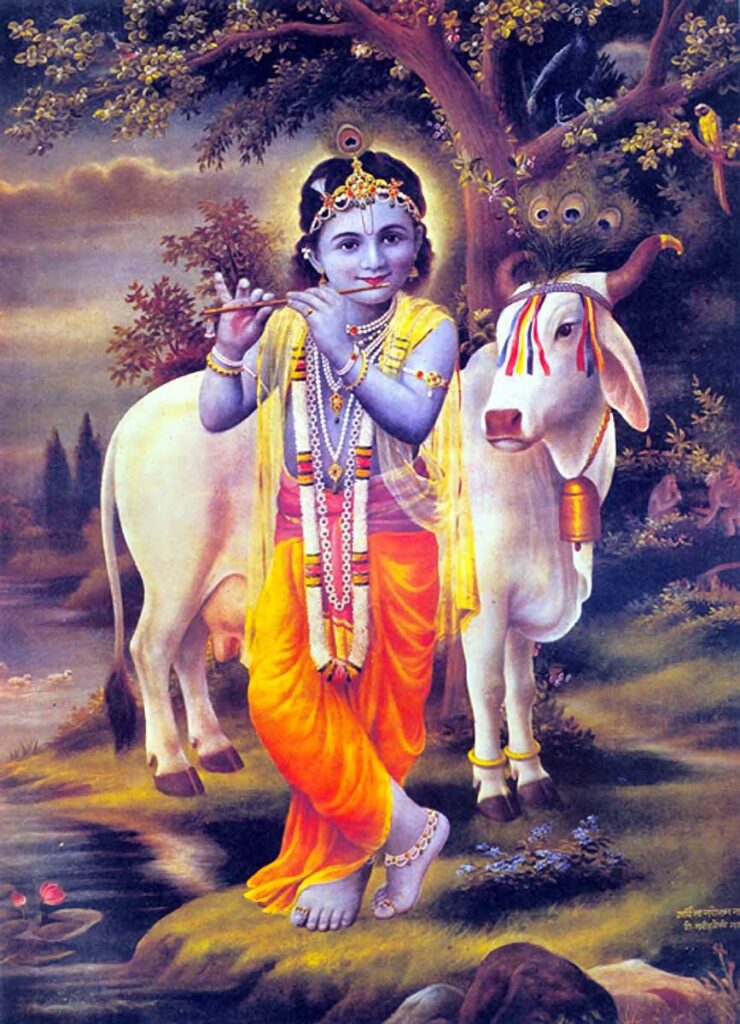

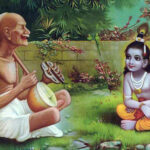
2 Comments
Wonderful , ty Kenaram d
Hari bol